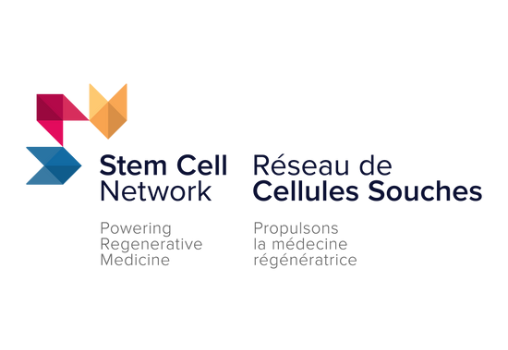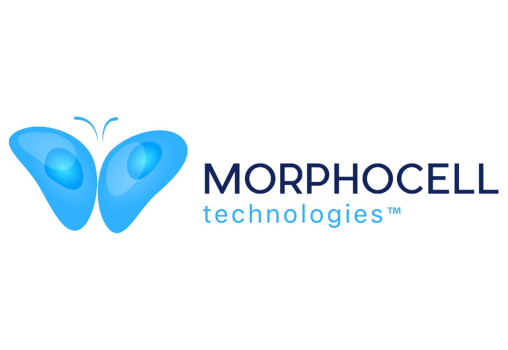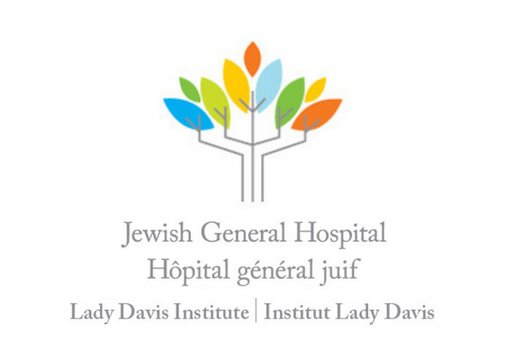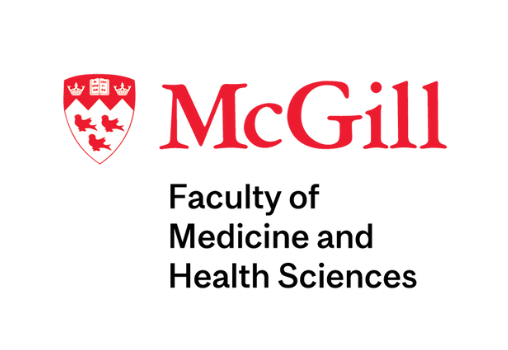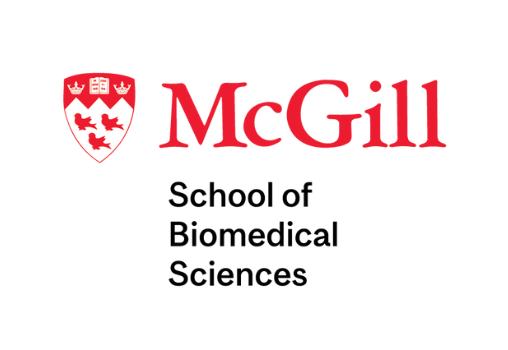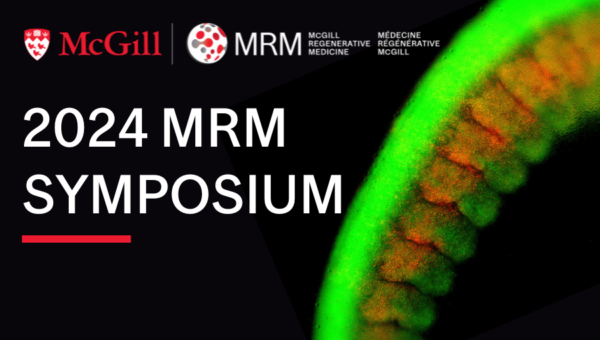
Coming up: the 2024 MRM Symposium
The 2024 MRM Symposium is just a few weeks away! Still not registered? Don’t miss out — Today is your last chance.
The MRM Symposium brings together basic researchers, clinicians, and trainees within the McGill Regenerative Medicine community. It will be held on May 31, 2024, at the McIntyre Medical Sciences Building. This year’s event features a keynote lecture from Dr. Peter Zandstra (University of British Columbia).
The final program can be found on the event’s webpage. Discover what exciting line-up the Symposium’s organizing committee prepared for you!
OUR SPEAKERS
Keynote speaker

Dr. Peter Zandstra focuses his work on the progression of regenerative medicine and immunotherapy. His education includes a BEng in Chemical Engineering from McGill University, a PhD in Chemical Engineering and Biotechnology from the University of British Columbia, and a Post-Doctoral Fellowship in Bioengineering from MIT.
Dr. Zandstra’s research, which incorporates engineering design principles, computational modeling, and stem cell biology, is geared towards understanding cell fate control mechanisms and developing new therapeutic strategies for diseases such as cancer and autoimmunity. His lab has produced 172 publications, garnered nearly 22,000 citations, and developed commercially applicable technologies for cell and gene therapies.
Recognized with over 30 awards, including as a Member of the Order of Canada, Dr. Zandstra’s influence is seen in his students and post-doctoral fellows who have achieved success in various sectors. Beyond his academic contributions, he co-founded the Centre for Commercialization of Regenerative Medicine (CCRM), Medicine by Design (MbD), and helped establish UBC’s School of Biomedical Engineering, demonstrating his commitment to interdisciplinary research and promoting Canadian Science and Engineering globally.
Principal Investigators
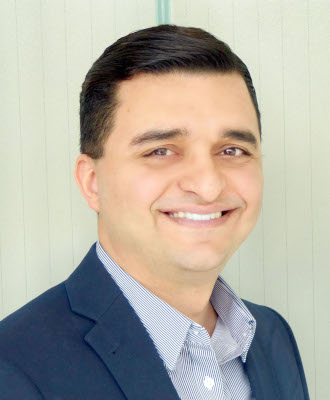 Ma’n H. Zawati (LL.B., LL.M., Ph.D. (DCL)) is an Associate Professor at McGill University’s Faculty of Medicine and Health Sciences and the Research Director of the Centre of Genomics and Policy in the Department of Human Genetics.
Ma’n H. Zawati (LL.B., LL.M., Ph.D. (DCL)) is an Associate Professor at McGill University’s Faculty of Medicine and Health Sciences and the Research Director of the Centre of Genomics and Policy in the Department of Human Genetics.
He is also an Associate Member in the Department of Medicine, the Department of Equity, Ethics and Policy and the Faculty of Law. His work is interdisciplinary, drawing together perspectives from law, ethics, genomics, and policy. His research mainly focuses on the legal, ethical and policy dimensions of health research and clinical care, with a special focus on data sharing, governance, professional liability, and the use of novel technologies (e.g., mhealth apps, WGS, WES). During COVID-19, Prof. Zawati was instrumental in setting up the ethics governance for multiple initiatives, including the Quebec COVID19 Biobank (BQC19), CGEn’s national HostSeq project and the COVID-19 Immunity Task Force. His work has facilitated access and use of data and samples across jurisdictions. He has appeared at 180+ international conferences, symposia, meetings, and has shared his expertise with universities, research ethics boards and law firms. He sits on the Board of Directors of Exactis Innovation and the Human Cell Atlas. Prof. Zawati has published more than 100 book chapters and peer reviewed articles in leading publications such as Nature Reviews Genetics, the Canadian Medical Association Journal, and the Journal of Law and the Biosciences. In 2015, he was awarded the Queen Elizabeth II Diamond Jubilee Scholarship (stay at Oxford University) and was named a Royal Society of Canada Delegate for the IAP Young Scientists of the Year international symposium. In 2021, Prof. Zawati received his J1 FRQS Career Award. In 2022, he published his first book: “Reciprocity in Population Biobanks: Relational Autonomy and the Duty to Inform in the Genomic Era”.
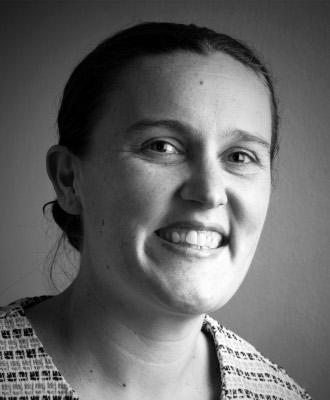 Professor Darcy Wagner joined McGill in January 2024 as the Canadian Excellence Research Chair in Lung Regenerative Medicine with a co-appointment in Medicine and Biomedical Engineering. Darcy started her independent laboratory at Lund University in Sweden in 2017 as a Wallenberg Molecular Medicine Fellow and European Research Council Starting Grant recipient. The broad interest of her laboratory is the development of bioengineering strategies to generate lung tissue ex vivo as well as to develop new therapies to regenerate tissue in vivo. Her laboratory combines novel and existing biomaterials with advanced manufacturing approaches to generate this tissue including microfluidics and 3D bioprinting. Her laboratory was the first to 3D bioprint human airways containing regionally specified primary cells. The long-term goal of the lab is to develop transplantable tissue to meet the unmet clinical need for solid organ transplantation but also to use these bioengineering advances to develop new ex vivo humanized models of disease and to screen new therapies. In order to build these models, her laboratory uses primary lung epithelial progenitor cells and more recently has become interested in in using induced pluripotent stem cells to derive the different lung and airway cell types.
Professor Darcy Wagner joined McGill in January 2024 as the Canadian Excellence Research Chair in Lung Regenerative Medicine with a co-appointment in Medicine and Biomedical Engineering. Darcy started her independent laboratory at Lund University in Sweden in 2017 as a Wallenberg Molecular Medicine Fellow and European Research Council Starting Grant recipient. The broad interest of her laboratory is the development of bioengineering strategies to generate lung tissue ex vivo as well as to develop new therapies to regenerate tissue in vivo. Her laboratory combines novel and existing biomaterials with advanced manufacturing approaches to generate this tissue including microfluidics and 3D bioprinting. Her laboratory was the first to 3D bioprint human airways containing regionally specified primary cells. The long-term goal of the lab is to develop transplantable tissue to meet the unmet clinical need for solid organ transplantation but also to use these bioengineering advances to develop new ex vivo humanized models of disease and to screen new therapies. In order to build these models, her laboratory uses primary lung epithelial progenitor cells and more recently has become interested in in using induced pluripotent stem cells to derive the different lung and airway cell types.
 Guy Sauvageau, founding scientific director of IRIC, is the principal investigator of the molecular genetics of stem cells unit of IRIC and hematologist at Maisonneuve-Rosemont Hospital. After his studies in medicine, specializing in hematology, he obtained a master’s degree in immunology-virology from the University of Montreal and a doctorate in experimental medicine from the University of British Columbia in the laboratories of Keith Humphries and Connie Eaves.
Guy Sauvageau, founding scientific director of IRIC, is the principal investigator of the molecular genetics of stem cells unit of IRIC and hematologist at Maisonneuve-Rosemont Hospital. After his studies in medicine, specializing in hematology, he obtained a master’s degree in immunology-virology from the University of Montreal and a doctorate in experimental medicine from the University of British Columbia in the laboratories of Keith Humphries and Connie Eaves.
His laboratory has provided a better understanding of the molecular bases of the self-renewal of normal and leukemic hematopoietic stem cells (HSC), by deepening our understanding of the function of Hox genes and other chromatin modifiers (Polycomb, demethylases, etc.). Over the years, the laboratory has also distinguished itself for the development of primary cellular assays adapted to the non-biased screening of genes and small molecules involved in the expansion and differentiation of HSCs. More recently, in close collaboration with medicinal chemists at IRIC (Montreal, Canada), under the direction of Dr. Anne Marinier, the team identified a new molecule which, for the first time, allows ex vivo expansion CSH. This optimized molecule, UM171, activates a previously unknown mechanism of action, involving a new E3 ligase complex which appears central in the epigenetic control of HSC expansion, both in vitro and in vivo. Initially used to expand cord blood stem cells before transplantation in more than 120 patients, it has led to impressive clinical results, appearing to outperform some more standard transplants.
Dr. Guy Sauvageau also co-directs, with Drs. Hébert, Marinier, Lavallée, Lemieux and Zawati, the Leucégène project, an initiative that brings together several Quebec researchers aimed at improving the characterization of acute myeloid leukemia and developing new therapies for this disease.
He is also the scientific founder of ExCellThera, a biotechnology company that develops new methods of culturing blood stem cells for therapeutic purposes.
MRM Trainees
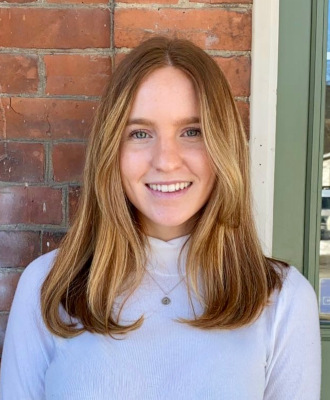 Sydney Joy is a second-year PhD student with the Division of Experimental Medicine at McGill. She completed her undergraduate degree in life sciences with a specialization in biomedical research from Queen’s University in 2022. Now her work focuses on investigating the therapeutic potential of mesenchymal stromal cells for systemic sclerosis-associated lung and skin fibrosis. Her PhD project explores the anti-fibrotic properties of MSCs using a 3D ex vivo lung culture model, animal model, and through an ongoing clinical trial (CARE-SSc).
Sydney Joy is a second-year PhD student with the Division of Experimental Medicine at McGill. She completed her undergraduate degree in life sciences with a specialization in biomedical research from Queen’s University in 2022. Now her work focuses on investigating the therapeutic potential of mesenchymal stromal cells for systemic sclerosis-associated lung and skin fibrosis. Her PhD project explores the anti-fibrotic properties of MSCs using a 3D ex vivo lung culture model, animal model, and through an ongoing clinical trial (CARE-SSc).
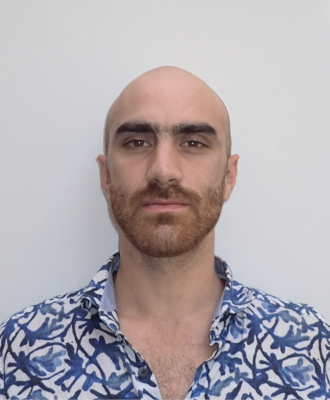 Originating from a dual chemistry/biology background, Etienne Billard pursued a PhD under the supervision of Dr. David Chatenet at INRS, Laval, focusing on the synthesis and pharmacological characterization of biased ligands of the urotensinergic system. After years of leadership within the Montreal Psychedelic Society, he decided to dedicate his career to researching the mechanisms of action of psychedelic substances, a commitment he’s upheld as a postdoctoral researcher in Terry Hébert’s lab since 2020.
Originating from a dual chemistry/biology background, Etienne Billard pursued a PhD under the supervision of Dr. David Chatenet at INRS, Laval, focusing on the synthesis and pharmacological characterization of biased ligands of the urotensinergic system. After years of leadership within the Montreal Psychedelic Society, he decided to dedicate his career to researching the mechanisms of action of psychedelic substances, a commitment he’s upheld as a postdoctoral researcher in Terry Hébert’s lab since 2020.
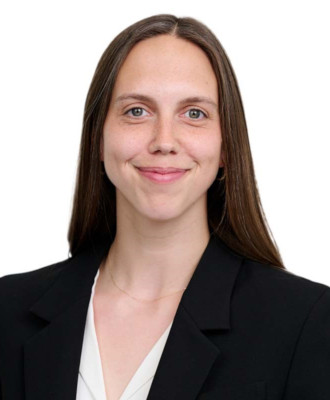 Alycia Noë has just finished her last year at McGill University’s Faculty of Law. She holds a Ph.D. in Biology from McGill University and a Bachelor of Arts and Science from McGill University. During her Ph.D., Alycia studied skeletal muscle degeneration in mice and during her undergraduate studies, she worked in a lab researching leukemia. As a result of her time as a scientist, Alycia has a keen interest in intellectual property and healthcare and the advent of AI in scientific research.
Alycia Noë has just finished her last year at McGill University’s Faculty of Law. She holds a Ph.D. in Biology from McGill University and a Bachelor of Arts and Science from McGill University. During her Ph.D., Alycia studied skeletal muscle degeneration in mice and during her undergraduate studies, she worked in a lab researching leukemia. As a result of her time as a scientist, Alycia has a keen interest in intellectual property and healthcare and the advent of AI in scientific research.
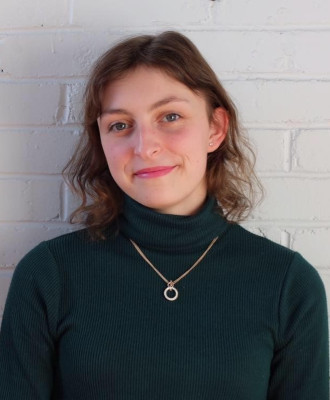 Alexandrine Dussault is working on 3D-printed (PLA/Layfomm) ligament and bone scaffolds, with a focus on investigating novel design parameters and materials. She holds a B.Eng. in Biomedical Engineering, Polytechnique Montréal, and is currently finishing her master’s in Surgical and Interventional Sciences at McGill University, under the supervision of Dr. Derek Rosenzweig and Prof. Isabelle Villemure (Polytechnique Montréal).
Alexandrine Dussault is working on 3D-printed (PLA/Layfomm) ligament and bone scaffolds, with a focus on investigating novel design parameters and materials. She holds a B.Eng. in Biomedical Engineering, Polytechnique Montréal, and is currently finishing her master’s in Surgical and Interventional Sciences at McGill University, under the supervision of Dr. Derek Rosenzweig and Prof. Isabelle Villemure (Polytechnique Montréal).
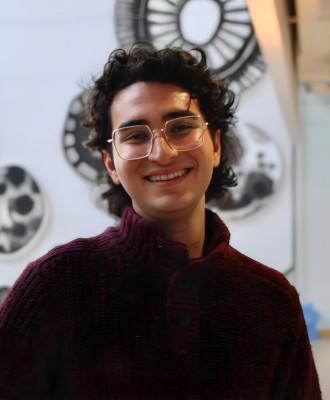 Andrew Dayton is an incoming U3 student in the Department of Microbiology & Immunology at McGill University. Originally from Toronto, he spent the past two summers training at SickKids Research Institute where he had the privilege of working under the supervision of McGill alumnus and one of Canada’s “Top 40 Under 40”, Dr. Jean-Philippe Julien. Andrew recently joined the lab of Dr. Heather Melichar in the Goodman Cancer Institue, where his project on T cell development will carry into his Honours thesis for his final undergraduate year.
Andrew Dayton is an incoming U3 student in the Department of Microbiology & Immunology at McGill University. Originally from Toronto, he spent the past two summers training at SickKids Research Institute where he had the privilege of working under the supervision of McGill alumnus and one of Canada’s “Top 40 Under 40”, Dr. Jean-Philippe Julien. Andrew recently joined the lab of Dr. Heather Melichar in the Goodman Cancer Institue, where his project on T cell development will carry into his Honours thesis for his final undergraduate year.

Justin Matta is an MD-MSc student in the Bone Engineering Lab at the RI-MUHC under the supervision of Dr. Edward J. Harvey and Dr. Géraldine Merle. He completed his undergraduate studies at McGill University in Pharmacology. His interest focuses on novel biomaterials for tissue engineering and regenerative medicine. His thesis involved the development of a novel and bioresorbable 2D nanomaterial, Borophene, in a hybrid Calcium-Phosphate System for enhanced bone defect repair.
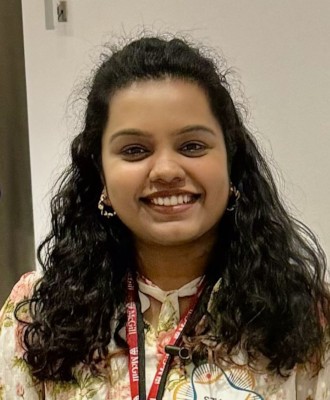 Varsha Reddy Durgempudi is currently a third-year PhD student under the mentorship of Dr. Anie Philip at the Division of Surgery, Department of Surgical and Interventional Sciences at McGill University. Varsha earned her bachelor’s and master’s degrees in biotechnology from India, where she focused on investigating small molecule inhibitors of PTK6 in cancer and characterizing murine models of Colorectal Carcinoma. These experiences ignited her passion for cancer research. In Dr Philip’s lab at McGill, she works on investigating the role of soluble CD109 in regulating critical signaling pathways in Head and Neck Squamous Cell Carcinoma using in vitro (2D, 3D) and in vivo models. As a future cancer research scientist, Varsha aspires to unravel the signaling intricacies of cancer progression.
Varsha Reddy Durgempudi is currently a third-year PhD student under the mentorship of Dr. Anie Philip at the Division of Surgery, Department of Surgical and Interventional Sciences at McGill University. Varsha earned her bachelor’s and master’s degrees in biotechnology from India, where she focused on investigating small molecule inhibitors of PTK6 in cancer and characterizing murine models of Colorectal Carcinoma. These experiences ignited her passion for cancer research. In Dr Philip’s lab at McGill, she works on investigating the role of soluble CD109 in regulating critical signaling pathways in Head and Neck Squamous Cell Carcinoma using in vitro (2D, 3D) and in vivo models. As a future cancer research scientist, Varsha aspires to unravel the signaling intricacies of cancer progression.
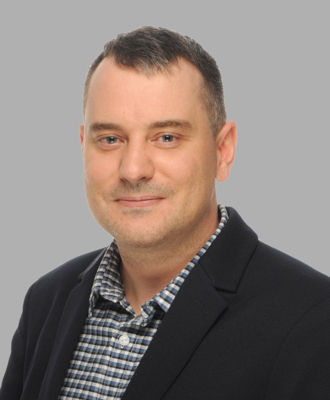 Dr. Soeren Huettner obtained his doctoral degree at the Leibniz Institute on Aging – Fritz Lipmann Institute (FLI) in Jena, Germany, in 2021 under the supervision of Dr. Julia von Maltzahn, where he uncovered a targetable transcriptional repression mechanism of skeletal muscle stem cell differentiation which is normally controlled by myogenic miRNAs but deregulated in human rhabdomyosarcoma, thereby promoting tumorigenesis.
Dr. Soeren Huettner obtained his doctoral degree at the Leibniz Institute on Aging – Fritz Lipmann Institute (FLI) in Jena, Germany, in 2021 under the supervision of Dr. Julia von Maltzahn, where he uncovered a targetable transcriptional repression mechanism of skeletal muscle stem cell differentiation which is normally controlled by myogenic miRNAs but deregulated in human rhabdomyosarcoma, thereby promoting tumorigenesis.
For his postdoctoral training Dr. Soeren Huettner relocated to Montreal, Canada, and joined Dr. Colin Crist’s laboratory at the Department of Human Genetics at McGill University and the Lady Davis Institute for Medical Research. His current research focuses on 3D genome architecture and its implications for progenitor fate specification. He applies novel genetic tools in the developing mouse embryo to determine how CTCF-dependent changes in genome architecture orchestrate cell fate decisions of multipotent progenitors that give rise to skeletal muscle and other lineages.
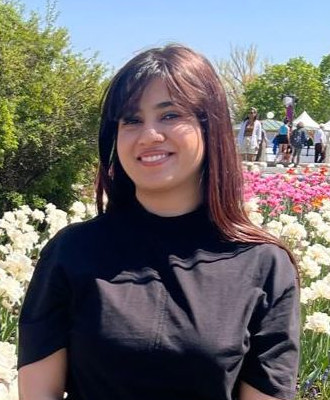 Iram Fatima Siddiqui is a fourth-year PhD student working under the supervision of Dr. Dieter Reinhardt in the Department of Anatomy and Cell Biology at McGill University. Her research focuses on understanding the role of the extracellular matrix protein fibrillin-1 in adipose stem cell differentiation and function. By exploring the dynamic interactions between stem cells and adipocytes with the surrounding extracellular matrix, she aims to advance our understanding of adipose tissue biology in general, its implications for metabolic diseases, and the role of fibrillin-1 in the connective tissue disorder Marfan syndrome.
Iram Fatima Siddiqui is a fourth-year PhD student working under the supervision of Dr. Dieter Reinhardt in the Department of Anatomy and Cell Biology at McGill University. Her research focuses on understanding the role of the extracellular matrix protein fibrillin-1 in adipose stem cell differentiation and function. By exploring the dynamic interactions between stem cells and adipocytes with the surrounding extracellular matrix, she aims to advance our understanding of adipose tissue biology in general, its implications for metabolic diseases, and the role of fibrillin-1 in the connective tissue disorder Marfan syndrome.

